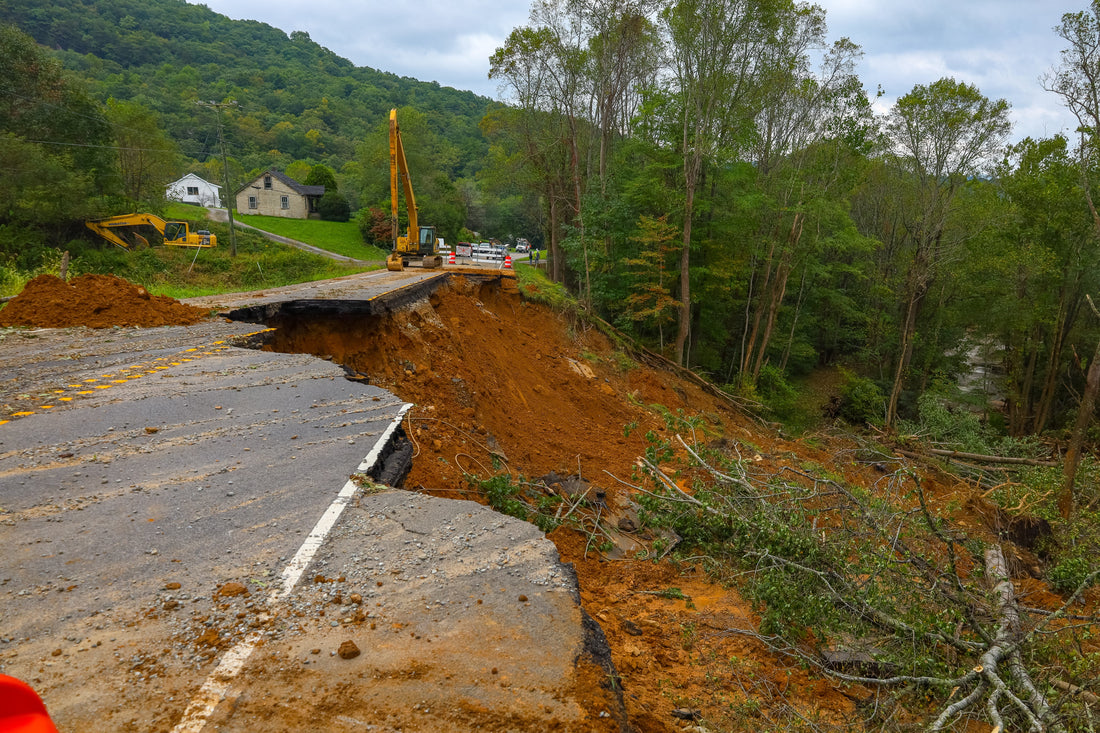
Disaster Insight: Navigating the Aftermath of Hurricane Helene in Appalachia
The road to recovery after Hurricane Helene will take time, but understanding your insurance policy and your rights can make the process less overwhelming. By tracking your expenses, leveraging available coverage, and being prepared to advocate for yourself, you can rebuild with greater confidence.
On September 24, 2024, Hurricane Helene swept through the Appalachian region, leaving a path of destruction, flooding, and devastation. For many, the process of rebuilding is now underway. Whether you’ve experienced damage to your home or a total loss, understanding the insurance claims process is critical to ensuring your recovery is smooth and successful. Here are key tips for handling your claim effectively.
1. Document Every Loss and Expense
After a hurricane, chaos often takes over. Expenses for temporary shelter, replacement items, repairs, and more can pile up quickly. However, many policyholders fail to adequately track these costs, leaving money unclaimed.
Pro Tip: Use tools like Foreceipt (iPhone | Android) to record receipts in real time. Take photos of damaged property and keep meticulous notes about repair costs, contractor estimates, and any additional expenses related to the disaster. The more detailed your records, the stronger your claim.
2. Request an Advance Payment
If your home was significantly damaged or declared a total loss, you might be eligible for an advance payment on your insurance claim. This allows you to access funds for essentials like clothing, temporary housing, and immediate repairs without waiting for the full claims process to conclude.
How to Get Started: Most insurance companies will honor written requests for advance payments. If you need guidance or a sample request letter, Tugboat Claims is here to help you craft one that meets your needs.
3. Leverage Your Additional Living Expenses (ALE) Coverage
Additional Living Expenses (ALE) coverage is a lifeline for many policyholders after a hurricane. It covers costs incurred due to displacement, such as hotel stays, increased commuting expenses, and even temporary housing rentals.
If you own multiple properties, strategically allocating your ALE coverage can maximize your financial relief. For instance, using ALE to cover temporary living arrangements while repairing your primary residence can free up resources for other critical needs.
4. Understand That Advocacy is Key
A common misconception is that insurance companies automatically pay out maximum policy limits after a disaster like Hurricane Helene. Unfortunately, the reality often involves negotiation. Whether it’s for the dwelling, contents, or additional damages, policyholders need to advocate for themselves.
Here’s how to prepare:
-
Inventory your losses: Create a detailed list of damaged or destroyed items, including approximate values and photos if available.
-
Be persistent: Don’t accept lowball offers from your insurer. If you feel your claim is undervalued, consult an expert.
-
Seek professional support: An experienced public adjuster or insurance claims expert can guide you through the process and ensure you’re fully compensated.
5. Plan for Flood Insurance Complications
One unique challenge for Hurricane Helene survivors is that much of the damage occurred due to flooding. Standard homeowners’ insurance policies often exclude flood damage, requiring separate flood insurance coverage.
If flood insurance applies to your claim:
-
Contact your insurer immediately to report the damage.
-
Provide comprehensive evidence, including photos, videos, and repair estimates.
-
Understand your policy limits: Many flood policies have specific caps, so it’s essential to strategize your claim to maximize your benefits.
Recovery is a Marathon, Not a Sprint
The road to recovery after Hurricane Helene will take time, but understanding your insurance policy and your rights can make the process less overwhelming. By tracking your expenses, leveraging available coverage, and being prepared to advocate for yourself, you can rebuild with greater confidence.
At Tugboat Claims, we specialize in helping policyholders navigate the complexities of disaster-related claims. Whether you’re dealing with hurricane damage, flooding, or other disaster-related losses, our team is here to provide guidance every step of the way.
Reach out today for expert advice and resources. You don’t have to face this challenge alone.
Disclaimer:
This blog is intended for informational purposes only and does not constitute legal or financial advice. Tugboat provides guidance and support, but we are not licensed public adjusters or attorneys. We do not negotiate or adjust claims on your behalf. All advice given is intended to empower you in managing your own claim, but it is ultimately your responsibility to pursue and handle the claim. Tugboat is not responsible for claim outcomes. Additionally, our tools are provided based on the information you provide, which may be incorrect or incomplete. Always consult a licensed professional for case-specific guidance.
Need expert guidance on a homeowner’s insurance claim? Tugboat Claims is here to help!



